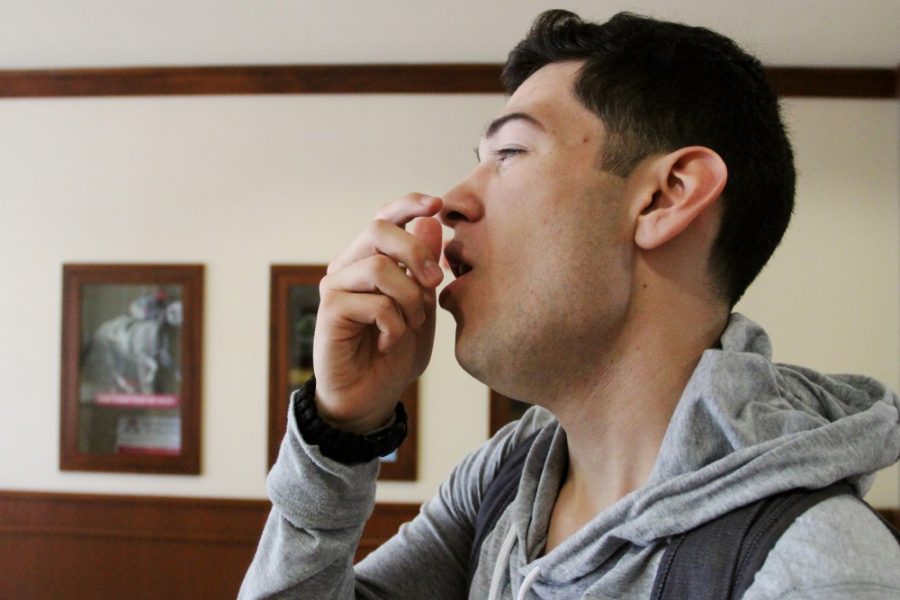This year’s flu season has gotten off to an early start, according to a new report from the Centers for Disease Control and Prevention, and college students are at an increased risk of falling ill.
At this point in the year, six states have already seen widespread influenza activity: Alabama, California, Louisiana, Massachusetts, Nevada and South Carolina. In addition, seven states, including Arizona, have seen regional influenza activity as of Nov. 16.
Being a college student comes with the risk of being more susceptible to the influenza virus. The close and constant contact with other students, professors and staff members on a college campus with a population of about 35,000 undergraduate students means a higher risk of getting sick.
RELATED: New class allows students to develop Alzheimer’s-fighting drug
“The close proximity of the students, especially ones living in dorms and Greek houses, are more susceptible to any communicable disease, including the flu,” said Dr. Michael Stilson, a physician and interim co-executive director of Campus Health.
So far this flu season, there have been deaths.
A 90-year-old woman from Albuquerque, N.M., recently died from the influenza virus,ccording to the New Mexico Department of Health.
In addition, a 5-year-old child in Texas died from the influenza virus. According to the Texas Department of State Health Services, the child had not yet recieved a flu shot. The agency warned that younger children can be particularly susceptible to this virus.
The 2018-2019 season broke the previous record of the longest-lasting flu season.Last year, the flu season lasted 21 weeks, the longest in the last 10 years, according to CNN. There was a total of 61,200 deaths during the season, which lasted from November to April.
Typically, most physicians recommend getting the flu shot at least two weeks before the start of the season, as it typically takes some time to build immunity to the influenza virus after getting the shot.
“The flu shot is not perfect, but it is still the number one best way to protect yourself from influenza,” said David Salafsky, director of Health Promotion and Preventative Services and interim co-executive director of Campus Health. “Flu viruses have the ability to mutate rapidly, which is why you need a seasonal flu shot each year to keep pace with those changes and keep you protected.”
RELATED: Pathways to Teaching program partners with Sunnyside School District
The flu shot works by acting as an artificial, active means to “prepare” the immune system for the real influenza virus. Each shot contains a combination of attenuated virus strains and adjuvants, which are compounds that make the shot more immunogenic.
Once given the shot, the immune system begins to produce antibodies as a response. Over time, the body has a repertoire of memory cells which can “fight off” the virus if and when the individual is infected later on.
According to the CDC, only about 45% of U.S. adults get vaccinated with the flu shot compared to about 63% of children who do so. This year, given the rampant early start to the season, people around the nation are becoming more at risk for a potentially fatal influenza virus.
Follow Amit Syal on Twitter








